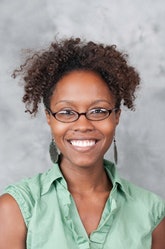 Dawn Henderson
Dawn Henderson“I tell you, Dawn, these students are suffering from some serious educational trauma,” a colleague of mine expressed in my office one afternoon.
We both teach at a Historically Black University in the South, where the majority of our students enter the university from under resourced, rural and urban school districts. Many of these students transition into our university ill prepared for higher education and from a history of trauma in the public school system. Their trauma, whether conscious of it or not, stems from continuous encounters with stressful life events they experienced in the public school system and beyond. It interferes with their confidence, learning, and, at times, motivation. In my advising, teaching and mentoring students of color at an HBCU, I am a witness to their struggles with efficacy, to be resilient, to persist through college.
In a political context arguing whether HBCUs are still relevant, our HBCUs are fighting to heal our students, our communities, and adhere to economic constraints.
The relevance of HBCUs is tied to a legacy of compensating for a system of education that too often fails to provide students of color with the skills required to succeed in higher education. Numerous HBCUs still educate a majority of students from economically disadvantaged communities and households where the likelihood of having completed advance and college prep courses in high school is minimal compared to their higher income and White peers. The National Center for Education Statistics reported only 6 percent of African-American high school graduates complete advance courses compared to 18 percent of White students. Accessing advance and college prep courses fosters higher level thinking skills, autonomy, and, to some degree, college persistence.
Students of color who graduate from high school completing advance and college prep courses enter a field where both HBCUs and predominantly White institutions (PWIs) are competing for their enrollment. Some HBCUs have to fight negative rhetoric (e.g., “poorer quality”) or do not have the resources of PWIs to compete for top students of color. More often, HBCUs pull students from the 94 percent of African-American students who do not complete advance and college prep courses.
A vast majority of economically and educationally disadvantaged students still enter our HBCUs, suffering from low levels of confidence in their academic abilities and having significant learning gaps. HBCUs attempt to create “healing spaces” in learning environments designed to build up our students from an education system that continues to use discriminatory practices, alienation, and, for some, violence. Some of these students are still first-generation, never had access to highly qualified teachers or to learning technology, and entered our institutions from struggling high schools. Others experienced victimization from teachers, peers and scrutiny because of the color of their skin or their neighborhood.
Faculty within HBCUs aim to “transform” deficits by building assets among students of color. We aim to graduate students who leave our institutions with a positive sense of identity and the skills required to contribute to a more just and equitable society. This work is not new to many HBCUs; the majority of us have been educating a population of economically and educationally disadvantaged people for more than a century. Our relevance rests on a population of people who continue to experience barriers within the public education system and beyond. We are striving to build the confidence of our students; we are striving to motivate, heal, and re-condition a mindset. It extends beyond learning about theories and concepts but requires pedagogy uniquely tied to a place of healing and liberation. It is “equity-minded” and situated within a context that builds the capacity of our students and infrastructure of our institutions. Our fight is not in our relevance but rather in our struggle on this road of healing for our students, our institutions, and, most importantly, the United States.
Dr. Dawn X. Henderson is an Assistant Professor in the Department of Psychological Sciences at Winston-Salem State University.


















